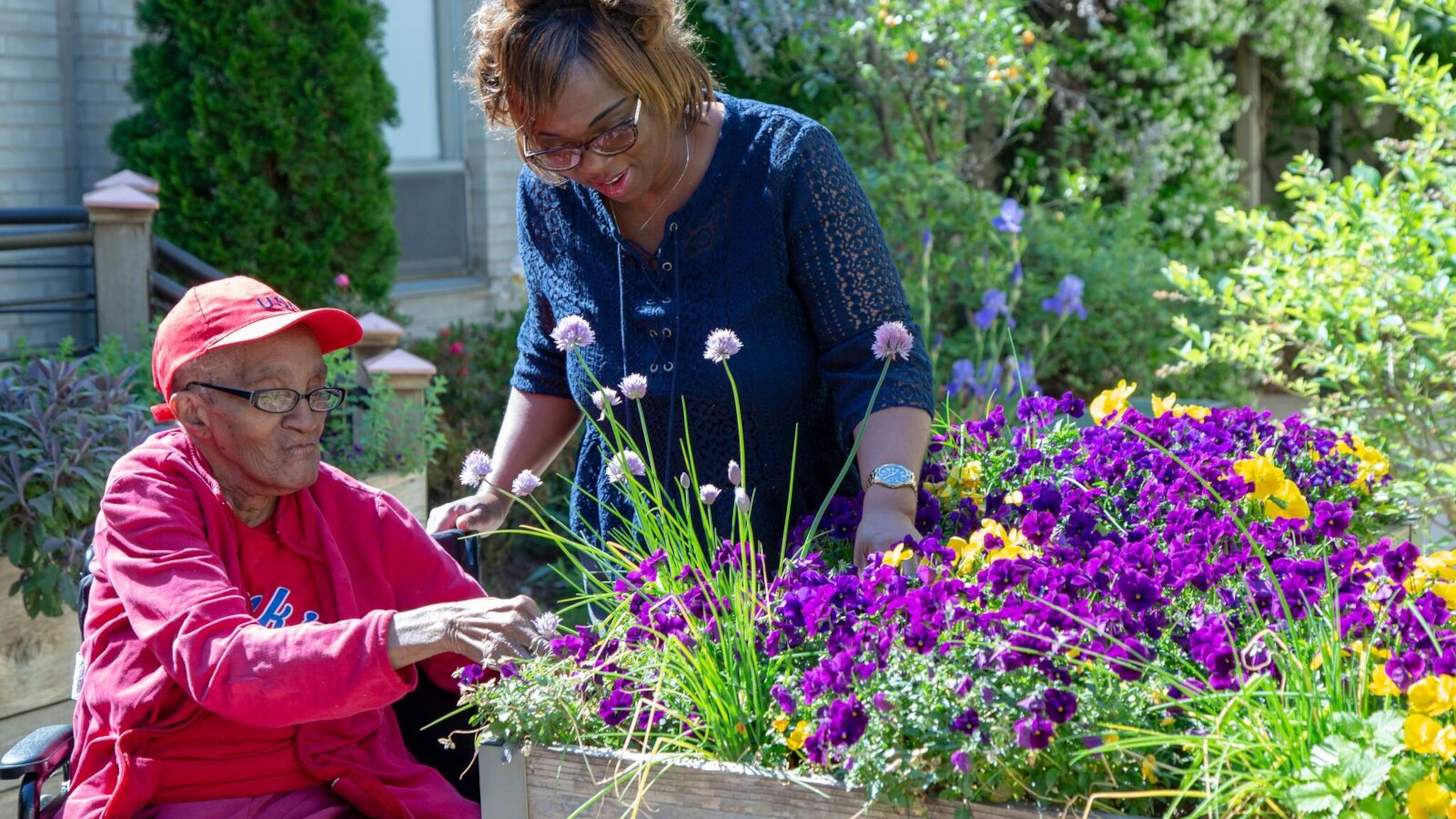One of Atlanta’s oldest nonprofits is dedicated to helping aging seniors

For more than a century, A.G. Rhodes has provided nursing care in the Atlanta area, with its mission evolving through the years.
"We are actually one of Atlanta's oldest non-profits," explains Mary Olsen Newton, chief communications officer at A.G. Rhodes. "We say we were founded in 1904, but our roots go back longer than that."
It started with the generosity of Amos Giles "A.G." Rhodes, founder of Rhodes Furniture, who provided the land and money to completely rebuild the Hospital of the Atlanta Circle of the King's Daughters and Sons, which was founded in 1897 to treat patients with incurable diseases.
» RELATED: A.G. Rhodes nursing director wins prestigious award
The new building was constructed at the corner of Boulevard and Woodward Avenue in 1904 and was named for Rhodes. Although it has since been rebuilt, A.G. Rhodes' flagship location is still at this Grant Park-area intersection and has evolved its mission to care for seniors.
Two more locations have since opened in Marietta (1992) and Wesley Woods (1997), which leases land from Emory's Wesley Woods campus. More than 1,300 seniors receive care from A.G. Rhodes each year.
"We offer skilled nursing services and short-term rehab after things like a stroke, hip or knee replacement," Newton said. Short-term residents receive rehab services for several weeks and then return home or to an assisted living facility. About 80% of A.G. Rhodes residents are there for long-term care and live at the facility.
The demand is high in Atlanta, Newton said, because Atlanta is the nation's fastest-aging community. This also means an increase in residents who have dementia, and as a result, A.G. Rhodes is working to tailor their care and better serve people living with this condition. The nursing home provider has been accepted into the Eden Alternative Registry, which means it has demonstrated that it has adopted person-directed principles and practices instead of relying on traditional approaches.
» RELATED: Unprotected: Broken promises in Georgia's senior care industry
Newton said these person-directed practices include "Sounds for Seniors," music therapy featuring a playlist on an mp3 player that's been customized for residents. Horticultural therapy is also included for residents who previously enjoyed gardening or would like to learn a new hobby, as is technology to help promote communication, memory and engagement.
The nursing home provider strives to provide a sense of community for residents, who can face, like many seniors in similar situations, loneliness, isolation and boredom.
This mission has become more difficult with the dangers of COVID-19, Newton said, and A.G. Rhodes has had to restrict non-essential visitors, including family and volunteers.
"Our communities are very vibrant and active. Right now, it's different, and it's challenging. We've had to limit so many things," she explained. "We're usually such a vibrant community. We'll get back there."
The nursing home is still trying to do innovative things, such as utilizing Skype and FaceTime, that will help residents stay in touch with loved ones during this time of increased social distancing.
» RELATED: Volunteer group sings to Alzheimer's patients
Services at A.G. Rhodes are partially paid for by a patient's Medicaid, Medicare or private insurance, with most long-term patients relying on Medicaid, Newton explained.
"We do rely on philanthropy," she added, "with wonderful, generous foundations and donors." They help fill the gap between the true cost of care and what Medicaid or other forms of insurance are willing to pay.
The community is welcome to send encouraging emails with pictures, letters or drawings to A.G. Rhodes residents via waystohelp@agrhodes.org or words of encouragement to staff members at the same email address. Community members can make a donation, which helps with programming. Volunteers are also welcome, and community members can learn more and apply for this opportunity, which will resume when possible.


